Speak No Evil Review (2024): Smart and Gripping Reinvention of an Interesting Story
Cast: James McAvoy, MacKenzie Davis, Aisling Franciosi, Alix West Lefler, Dan Hough, Scoot McNairy
Director: James Watkins
Where to Watch: In Theaters
Filmyhype.com Ratings: 3.5/5 (three and a half stars)
2022 saw the release of the Danish film Speak No Evil by Christian Tafdrup, which quickly captured attention in the contemporary psychological thriller scene. A film that stands out for its refined style and deep focus on the emotional and mental sphere, rather than the usual mechanisms of the commercial thriller. However, some critics considered the film overrated. This did not prevent, however, Blumhouse, the famous American horror film production company, from purchasing the rights for a remake. Don’t expect, however, the classic poor remake of a European film, because Speak No Evil, directed by James Watkins, is much more than a simple remake: the goal was not to reproduce the original film piece by piece, but to offer a new point of view. Watkins, known for his ability to manage tension and dark atmospheres (remember that he is the director of films such as The Woman in Black, a gothic horror with Daniel Radcliffe), takes the plot of the Danish film, but enriches it with a new perspective, giving the story a greater narrative intensity.
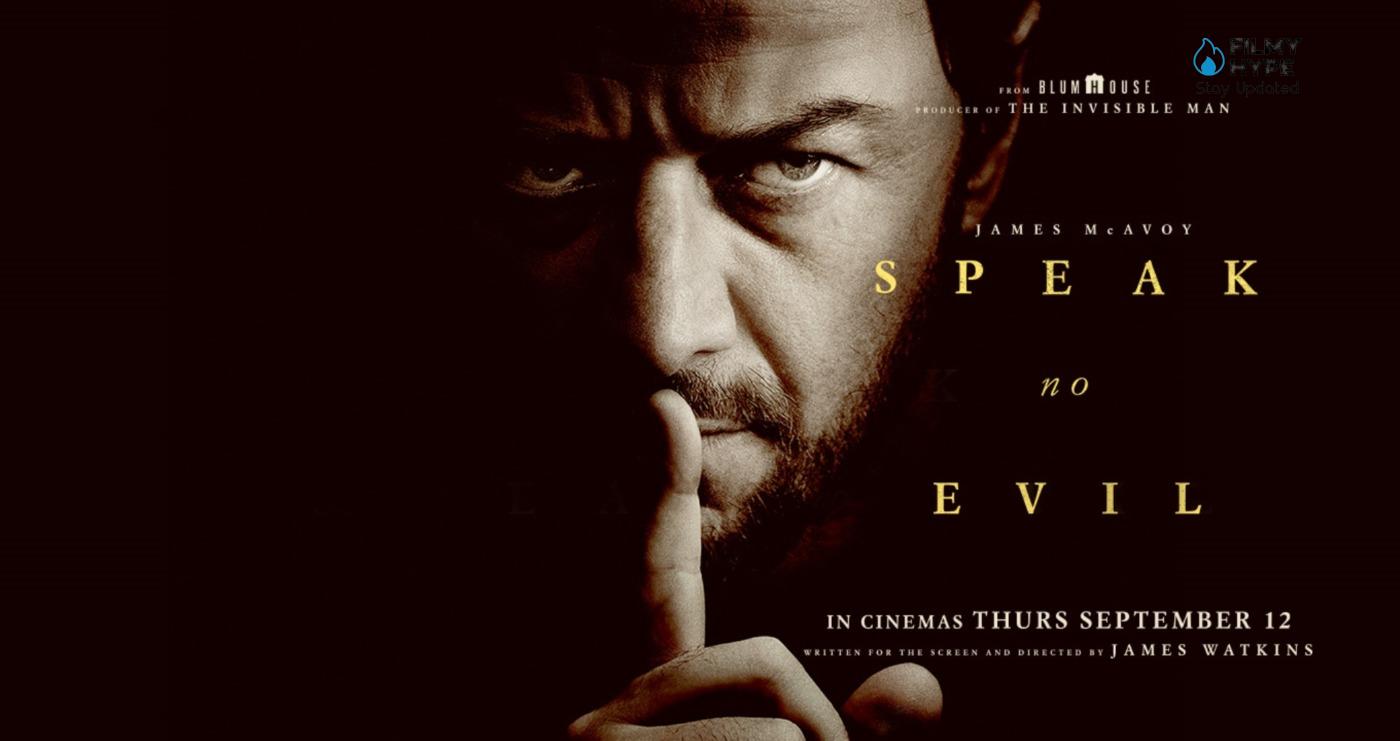
Was it really necessary? This is the question everyone asked themselves when a remake of the acclaimed and cynical horror film Speak No Evil was announced, not only because of the proximity (the writer saw the new version just under two years after the original, in the same cinema, by the way), but also and above all for another crucial detail: what sense does it make to remake for the American market, notoriously allergic to subtitles, a film that, despite being made in Denmark, was already almost entirely in English? A question – among many – that the new feature film, directed by the Englishman James Watkins and produced by Blumhouse, tries to answer, allowing us to talk about it in our review of Speak No Evil.
Speak No Evil Review (2024): The Story Plot
Ben and Louise Dalton (Scott McNairy and Mackenzie Davis) are a couple on holiday in Tuscany with their daughter, Agnes (Alix West Lefler). During their stay, they meet another family, the English Paddy (McAvoy), Ciara (Aisling Franciosi), and Ant (Dan Hough). Unlike the Daltons, Paddy and Ciara are extroverted and out of line, even if little Ant does not speak due to a speech disorder. The couples become friends and then say goodbye at the end of the holiday. Once back in London, where they live a life that is not exactly exciting and with obvious friction after moving from the United States, the Daltons receive a letter. Paddy and Ciara have invited them to spend a weekend at their house in the countryside. Ben and Louise accept, convinced that they can recharge their batteries a little away from the gray of the city, but their stay soon turns into a siege of strange behaviors and omens from their hosts, perhaps decidedly less affable and welcoming than they initially seemed.
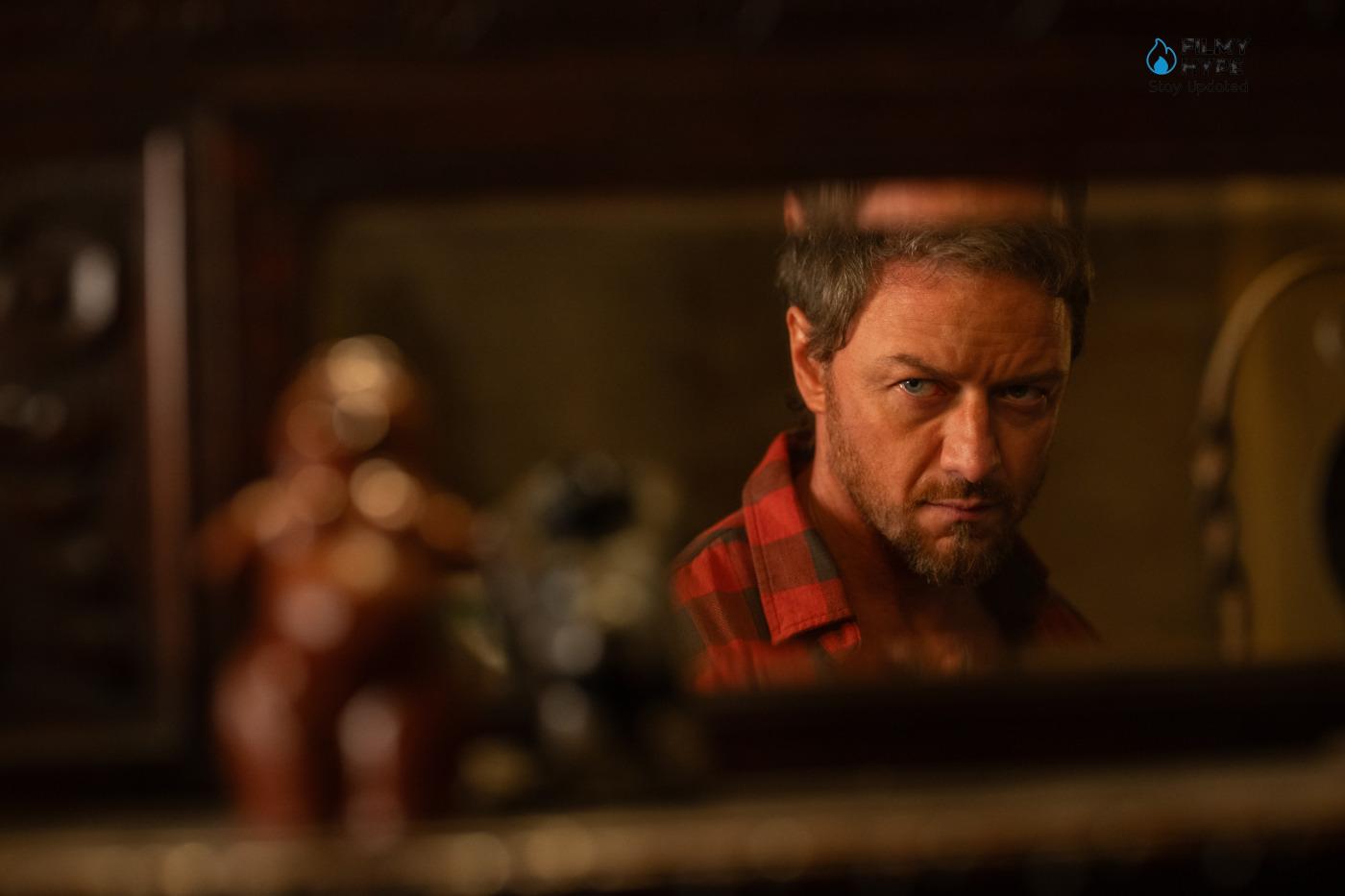
For much of its length, Speak No Evil is a carbon copy of the original work’s screenplay, following its path that puts into friction the hypocrisies of a bourgeois class close to derailment when in contact with a reality thought to be idyllic and which then reveals itself to be far from its idealization. Suddenly, however, two-thirds of the way through the film, Speak No Evil chooses to trace its path. It is an interesting choice, and it is essential to underline it in the review, trying to avoid the risk of revealing too much, because it is in this type of choice that a remake, and therefore a film, takes on an identity. It takes on a certain posture. No small challenge, looking at the original source material, was trying to understand how to convey that profound nihilism, and that terminal hardness, towards an audience prone to reassurance like the American one. Tafdrup’s film played the implacable requiem of bourgeois idiocy, of its claim to quiet and composure even when behind the facade the skeleton rots. It was a point of no return not easy to digest, and right there was the needle prick of a clear, abysmal shock.
Speak No Evil Review (2024) and Analysis
Where the original made use of a cast of not particularly well-known actors, the remake has immediately highlighted in its marketing the presence of James McAvoy in the role of Patrick, called Paddy, the English head of the family whose role becomes progressively more sinister, allowing the Scottish actor to have fun with that dark side of his interpretative personality that he does not always have the opportunity to bring out on screen. Notable, at his side, the Irish of Italian origin Aisling Franciosi, launched by The Nightingale six years ago and once again the protagonist of a very brutal story, but this time on the other side of the barricade. The American couple instead have the features of Scoot McNairy and Mackenzie Davis, perfectly uncomfortable and/or terrified when the script requires it.
Speak No Evil has on its side, in fact, the ability of a very muscular James McAvoy to perfectly convey the feeling of fear that he arouses in the Daltons, to return it to the audience well before reaching extreme consequences in the final stages. The two very young actors Alix West Lefler and Dan Hough, the children of the two couples, are also very good. Children are always crucial in the success of a psychological horror on a family basis like this and here – in the face of two parts that are anything but marginal in the economy of the story – their excellent performance makes the difference. What makes the English-language Speak No Evil less incisive than its Danish counterpart is the rewriting of the script. When Paddy and his wife’s intentions become clear when we discover how and if the Daltons will cope, we realize that this remake does something very different, toning down both the level of violence reached by the original film and the strength of its message.
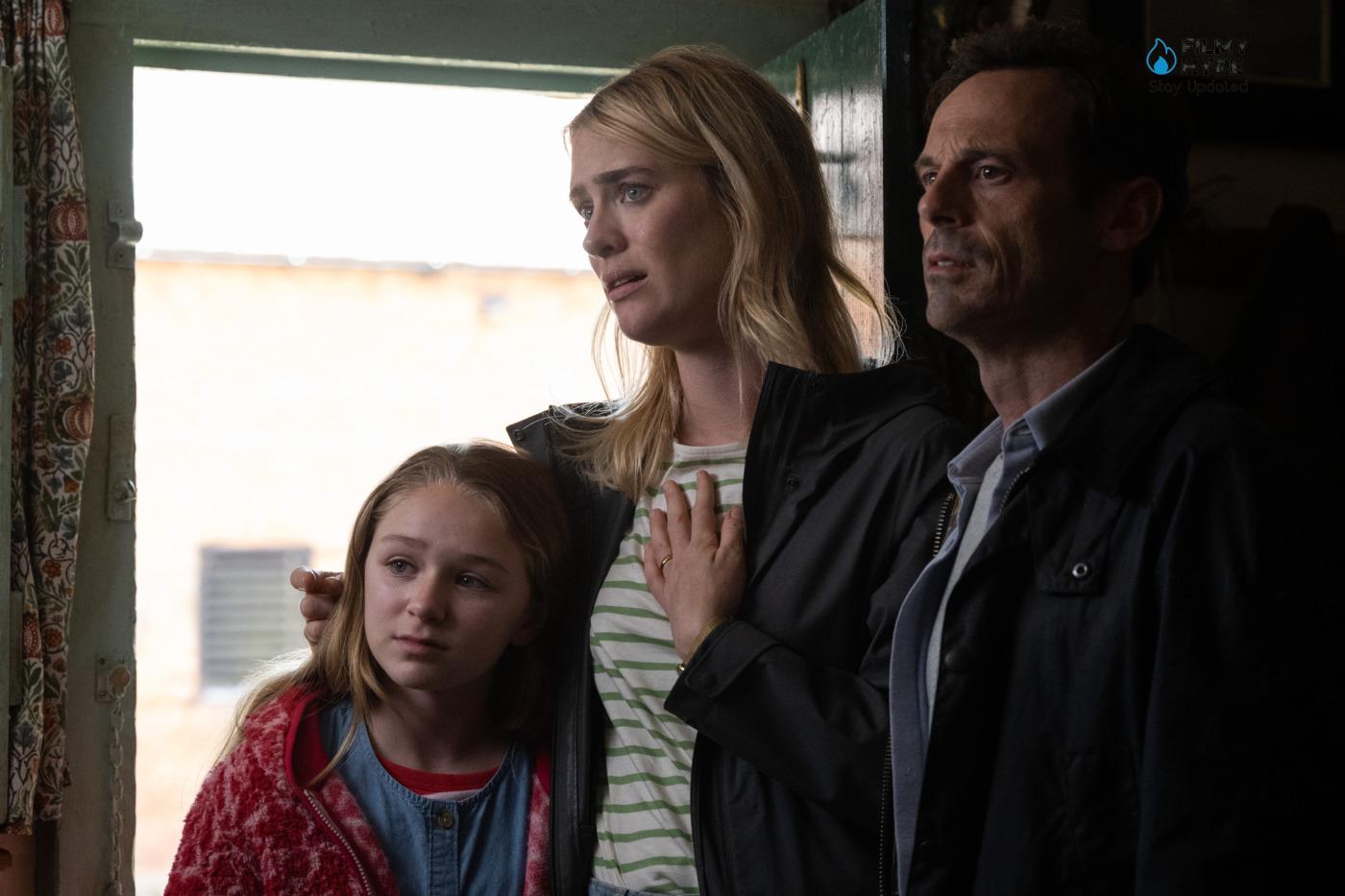
Director James Watkins (Bastille Day, Black Mirror) is no stranger to the horror genre and knows how to move discreetly in this vein, raising the bar of tension throughout the film. The settings chosen by the film, the old-fashioned and lived-in house in the middle of nowhere of the English family, the “restaurant” where the two couples go out for dinner, the contrast with the aseptic efficiency of the Daltons’ apartment: the atmosphere of bucolic idyll that borders on nightmare, outside the safety net of social pressure to behave, is there. The music by Danny Bensi and Saunder Jurriaans also helps to create the right tension. As a screenwriter, Watkins is not as incisive. It would be fascinating to understand whether the changes made to the plot were dictated by the desire to surprise the audience of the original film by the need to tone down the extreme conclusions reached by the original Danish film… or by a mix of both, turning necessity into virtue, as they say.
While Tafdrup’s original film overdid the allegorical metaphors, James Watkins manages to shake up the narrative, giving the film a more dynamic turn. The film’s second half moves away from the protagonists’ apathy, transforming what was a slow descent into horror into a real fight for survival. The concept of passive resistance, embodied by the Dalton family, becomes the fulcrum of an explosive climax that takes the film to a different level compared to its predecessor. The famous phrase, “You are the ones who let us do it”, becomes a symbol of reflection on the passivity of modern society, now anesthetized in the face of any form of violence or manipulation. Watkins thus manages to shape a film that is not simply a copy, but an almost entirely original work.
The film also stands out for the performances of its cast. James McAvoy, as Paddy, offers a charismatic and disturbing performance, managing to convey charisma and terror in equal measure. Scoot McNairy and Mackenzie Davis are equally solid in the roles of a couple struggling to maintain their sanity in an increasingly desperate situation. Special mention goes to the young actors: Alix West Lefler, in the role of the young Agnes, suffering from severe anxiety attacks, and especially Dan Hough as Ant. Although his character is mute, Hough manages to communicate a deep anguish with few expressions and gestures, making his silence even more disturbing. It was therefore possible to intuit that Watkins’ work, oriented towards a broadening of the audience, would first of all work to soften the crown of thorns to be placed on the head of the viewer. He does this throughout Speak No Evil, making the story and its twists more effective, less dilated, and reflective.
Less open, in essence, to the gloom of doubt and more oriented towards quickly translating easily readable and identifiable ambiguities into the characters’ personalities. Watkins actually adds further dynamics between the children of the two families and, above all, between Paddy (at a certain point McAvoy draws from the repertoire of Split) and Ciara, who identify certain power relations in a much more precise manner. It is a way of hierarchically scaling the degrees of evil, and therefore of boxing in with less room for nuance the original guilt and those who hold it. The reason why Speak No Evil does this becomes clear precisely when you reach the last portion of the film. It is here that the production matrix behind the remake emerges, namely that of the very lucky – but lately not exactly brilliant – Blumhouse Productions, the production house that is the queen of contemporary entertainment horror and very attentive to the box office.
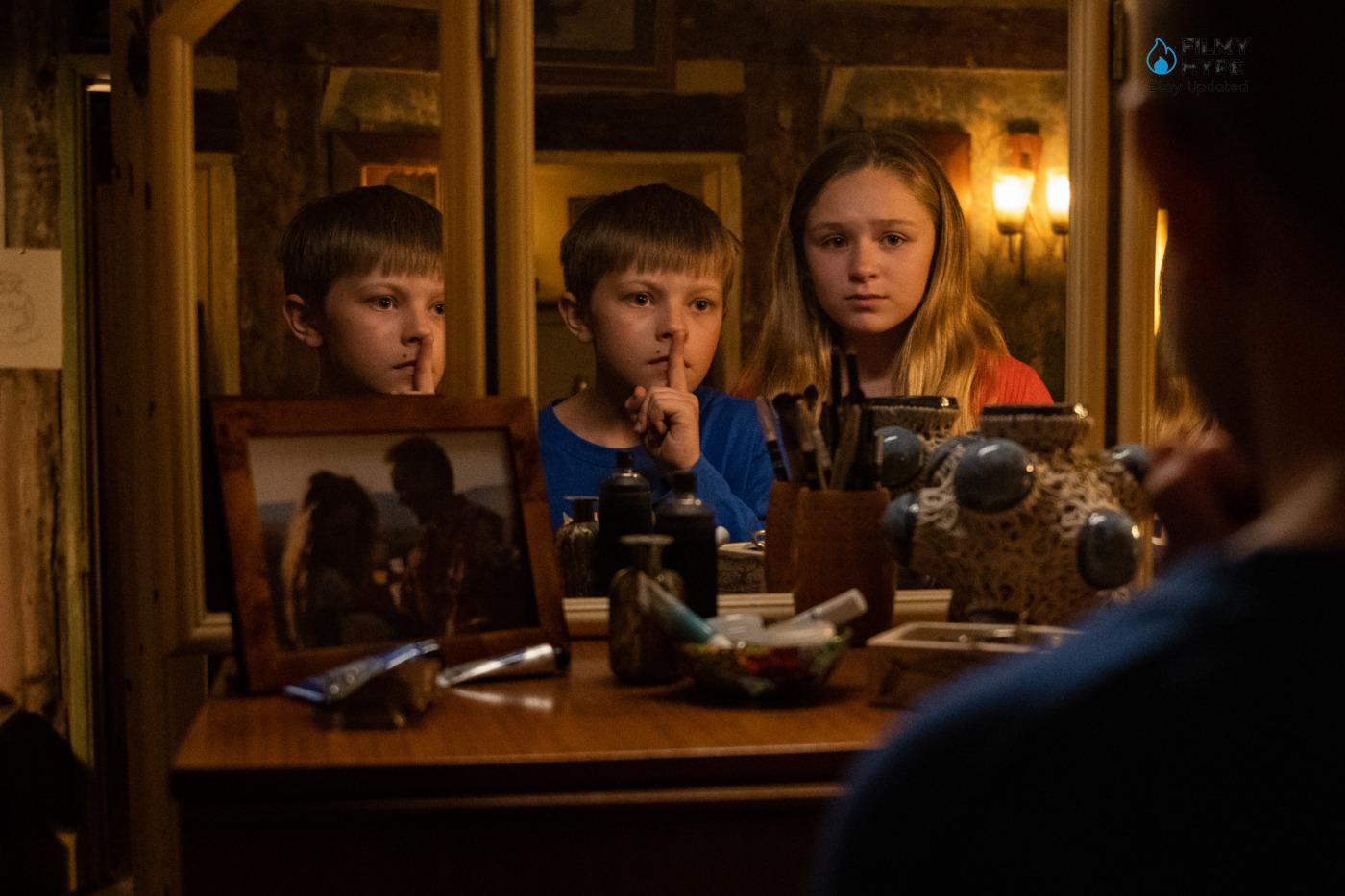
Speak No Evil changes its approach and tone, and consequently its meaning, by reversing the starting assumptions. From a purely psychological skirmish thriller, we find ourselves upended into what effectively becomes a home invasion, with its own structural rules, visual code, and a specific outcome. It is a turnaround that at that point in the film implies conveying a completely different message, reassuring, because it is open to a further possibility, to the attempt to defuse something we have gotten ourselves into. And it is a shame because it is the laziest choice that a similar remake could make in telling such a bitter story, practically completely avoiding the reflection it was aiming for.
The most interesting detail is linked to another name that appears in the credits: the screenplay and direction are in fact by James Watkins, an English filmmaker known above all in the horror field, and who established himself in that field in 2008 with his first work Eden Lake, another story of a couple on holiday who discover the dark side of the English countryside (he, among other things, was a then unknown Michael Fassbender). And even if in a sweetened way, due to the American means of production, that poetics resurfaces in this, his fourth feature film, which from the beginning lays the foundations for something not strictly identical to Kristian Tafdrup’s prototype. In fact, after 65 minutes that adhere quite slavishly to the origin (except for a few cultural references and a couple of clues about the direction the director wants to go), the remaining 45 are completely different, distorting the meaning of the Danish version but being in line with the discourse that Watkins has previously carried forward.
And so the title acquires an almost meta cinematographic connotation, a little perverse because the evil that must not be spoken of does not have the same power that it had in the indelible ending of the Danish film. It is almost as if it were not there, sacrificed in the name of entertainment that, however effective (the director knows how to deal with moments of violence), will not leave a mark as its European predecessor did in its time. That the work of the Danish Christian Tafdrup is not banal and offers a decidedly unexpected menu to the unwary viewer, is revealed already by the first sequences. A mysterious beginning almost Lynch-like, then a soundtrack placed there to generate a meandering and constant tension on scenes apparently of banal everyday life, which accompanied by another piece of music could have seemed those of a harmless comedy. And instead Speak No Evil is a progressive descent into hell.
Even easy to predict because few times have, we wanted to scream at the protagonists, in this case, the Danish victims of the story, what the hell are they waiting for to get away from an unpleasant and embarrassing situation, it is certainly a harbinger of something very unpleasant. Also, during the story, they have had the freedom and the opportunity to do so several times. That the work of the Danish Christian Tafdrup is not banal and offers a decidedly unexpected menu to the unwary viewer, is revealed already by the first sequences. A mysterious beginning almost Lynch-like, then a soundtrack placed there to generate a meandering and constant tension on scenes apparently of banal everyday life, which accompanied by another piece of music could have seemed those of a harmless comedy. And instead Speak No Evil is a progressive descent into hell.
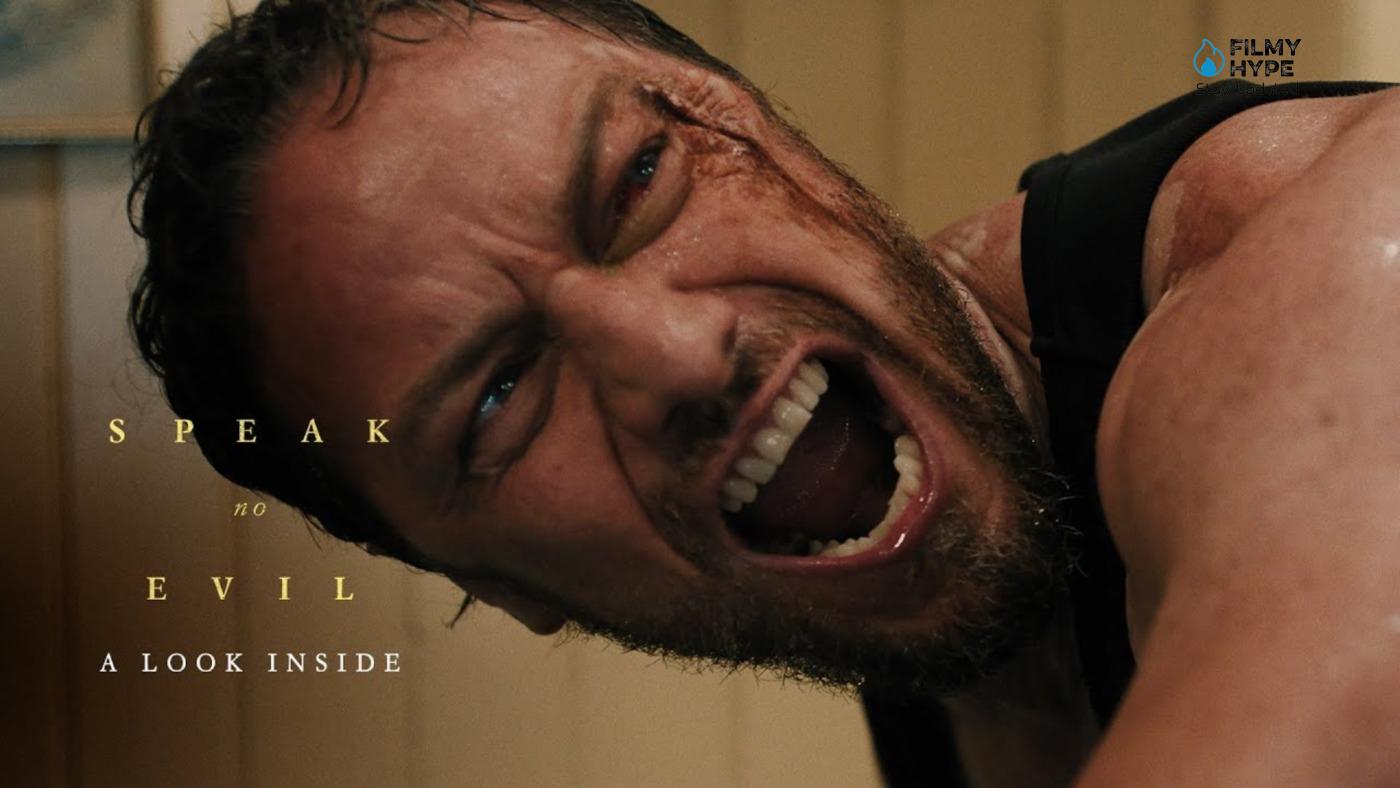
Even easy to predict because few times have, we wanted to scream at the protagonists, in this case, the Danish victims of the story, what the hell are they waiting for to get away from an unpleasant and embarrassing situation, It is certainly a harbinger of something very unpleasant. Also, during the story they have had the freedom and the opportunity to do so several times. But be careful, because what might seem like senseless and totally absurd behavior, perhaps even just a narrative device to move the story forward, is actually the fundamental core of the film. Why don’t they leave? Why do they go back when they’ve already done so? It’s not a question of a fascination with evil (still ignored until the end), the fact is that Bjørn, who of the couple is the one who is most convinced each time to stay, sees in Patrick almost a sort of model who embodies his desire to escape from a life oppressed by conventions, barriers and good manners.
Illuminating in this sense is the scene in which the two men go to scream in the open spaces, in which the repressed Bjørn emerges. The charm is therefore Patrick’s ability to satisfy his own impulses. Even if in reality a total surrender to instincts is still unsatisfactory, because as we will understand at the end, it is a thirst that can never be quenched. At the same time, finding a balance between the two behaviors is difficult. The Danish couple continues to rely on good manners, on a sort of sense of duty that will however be fatal. In the end, not picking up the continuous and sinister signals, the victims almost become executioners of themselves. Speak No Evil has the merit of traveling on a constant carpet of uneasiness, on a feeling of something horrible that looms inescapably over the protagonists, even without resorting to physical violence (until the almost unbearable ending), but only with unpleasant behavior and verbal jabs. All are conducted in a direction that skillfully plays with sound and photography to support this anxiety-inducing stage.
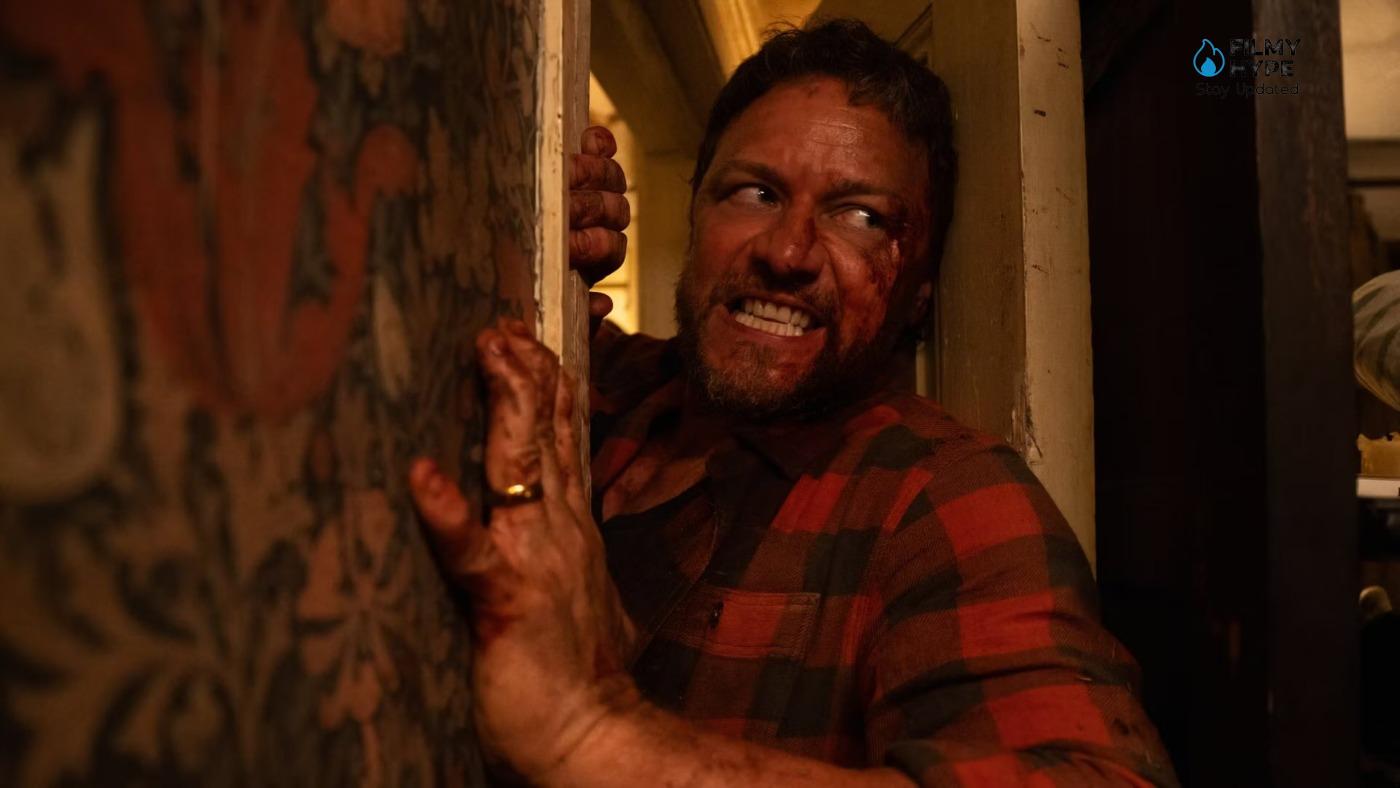
Until the ending where evil explodes naked and raw for what it is, without inhibitions, and where we will also understand the truth about why little Abel has his tongue cut out. But it is an explosion in which the victims further accentuate the feeling of being co-responsible for how things ended (in this regard, a joke by Patrick will be enlightening, which we obviously won’t reveal to you), for not having done anything to unplug from the vortex they were falling into, even though they had the chance. But when you encounter pure and unjustified evil, trusting and making the best of a bad situation is the wrong thing to do. Even more effective is the audio, a DTS HD 5.1 present for both the Italian and the original: this is not a traditional horror film with screams and thumps, but the tracks still enhance the tense and disturbing soundtrack thanks to a notable body of sound. But the audio is also excellent for the general involvement, the good spatiality in the sound effects, the consistency of the bass, and the precise dialogues. In the extras, in addition to the aforementioned booklet, also 18 minutes of promotional clips (basically clips of the film) and the trailer.
Speak No Evil Review (2024): The Last Words
Speak No Evil is not just a remake, but a smart and gripping reinvention of an already interesting story. Watkins manages to elevate the original work, transforming it into a tense and fast-paced psychological thriller. A film that, while respecting the roots of the Danish work, finds its own identity, conquering with a fascinating and disturbing narrative. We reiterate that the Danish Christian Tafdrup‘s is a disturbing horror-thriller, worth seeing, only apparently banal but which in reality lends itself to numerous readings. A film that without resorting to blood but to a lot of tension and creeping psychological violence, succeeds in the objective of remaining engraved in the mind of the viewer.






